LESSON 3333 Mon 13 Apr 2020
The Honourable Chief Justice
of All Free Online E-Supreme Courts of the world,Research and Health Ministries of all Governments of the World, Research Doctors, Media and Social Media at large
Sub: Request for passing orders to all the Governments to make public full details on how did 412,356 as on 13-4-2020 recover from COVID-19. Such details will help all
surviving world population to live in peace relieved from the the ongoing curfew imposed by the Governments.
With Kind Regards and for favourable orders
Yours Sincerly
Jagatheesan Chandrasekharan
2. Such an appeal may be sent by all surviving people to the Free Online E-Supreme Courts,Research and Health Ministries of all Governments of the World, Research Doctors, Media and Social Media at large
3. Lock your homes and place a
NO ENTRY
board for
COVID-19, Yama dharmaraja, Murderer of democratic institutions(Modi),
Bevakoof Jhoothe Psychopaths (BJP) and the chief of RSS(Rowdy/Rakshasa
Swayam Sevaks) Facist Hitlers to prevent starvation deaths
4. May all 7,777,286,562 surviving world population be ever happy, well and secure!
May all live long!
May all be calm, quiet, alert, attentive, and have equanimity mind with a clear understanding that everything is changing !
How did 412,356 COVID-19 cases recovered:
5. The
world will be happy if the secret as to how and with what vaccineor
medicine have they been cured which has to be published.This will save
treatment cost of Rs 7.5 Lakhs in Government and Rs.15 lakhs in Private
Hospitals.
7. All
Governments and their trusts formed for COVID-19 must and should pay the
Hospital charges and provide online food and shelter for migrant workers
by distributing the wealth of the countries equally among all sections of
the societies for their welfare, happiness and peace as a choice is
between starvation and infection and for them to attain Eternal Bliss as
Final Goal.Apart from BCG vaccines which was injected to the people
prevented the virus,
https://www.dailymail.co.uk/…/COVID-19-Australian-researche…
8. Australian researchers
claimed
two existing drugs which could ‘cure’ COVID-19 with HIV and
anti-malaria drugs as Drugs used to treat HIV and malaria could be used
to tackle the COVID-19,according to scientists in Australia
convalescent plasma therapy as a promising option to save lives till a
vaccine is found. Anti-malarial drug hydroxychloroquine, which Trump has
touted as a treatment optionfor COVID-19 where Modi bowed to President
Donald Trump’s demands.
9. And
certainly not the permanent curfew stealth shadowy hindutva treatment
such as drinking cow’s urine, Cow dung bath, clapping hands, pushups
(thoppu karanam) to god ganesha, angha pradarshanam, and lighting lamps
to drive out COVID-19 and blaming the Aboriginal Awakened Muslims Who
are converted SC/STs (untouchables) for the spread of virus by
the Modi, Agarwal, Pila Rajesh by Health Department of Bevakoof Jhoothe
Psychopaths (BJP). As it is not proved they must be booked under
Prevention of Atrocities Act.
10.Free Online NIBBANA TRAINING
from KUSHINARA NIBBANA BHUMI PAGODA -PATH TO ATTAIN PEACE and ETERNAL BLISS AS FINAL GOAL
Even a seven year old can Understand. A seventy year old must practice.
Say YES to Paper Ballots
NO
to EVMs/VVPATs to save Democracy, Liberty, Equality and Fraternity for
the welfare, happiness and peace for all Awakened aboriginal
societies.is the
HONEST VOICE of ALL ABORIGINAL AWAKENED SOCIETIES (HVoAAAS)
Dr B.R.Ambedkar thundered “Main Bharat Baudhmay karunga.” (I will make India Buddhist)
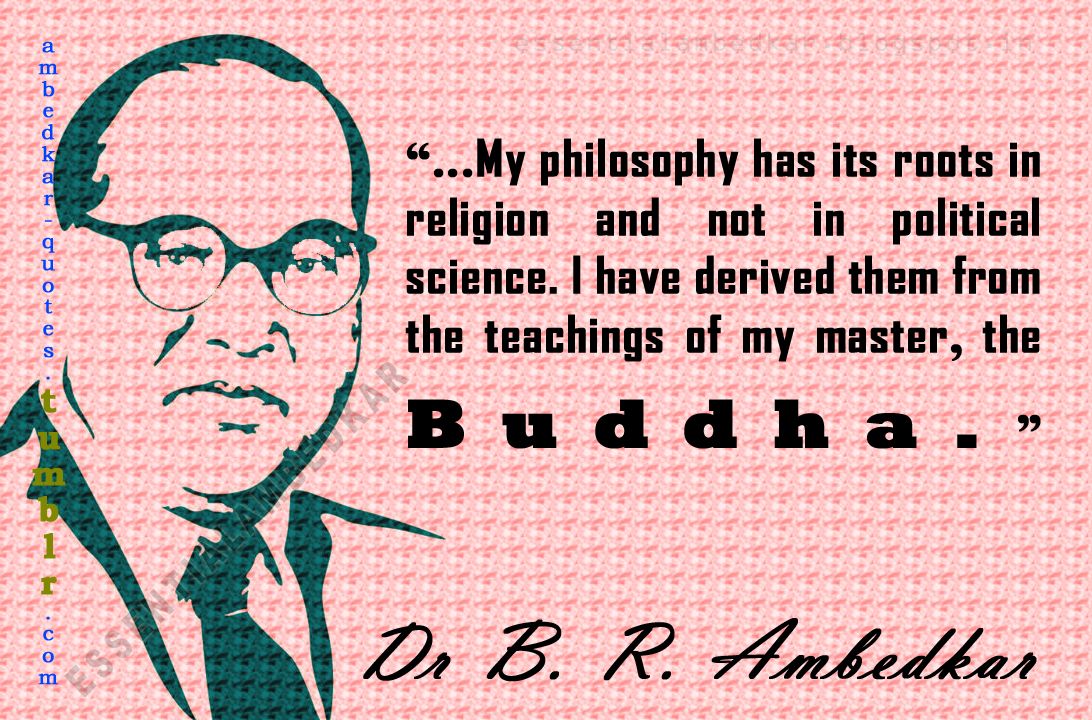
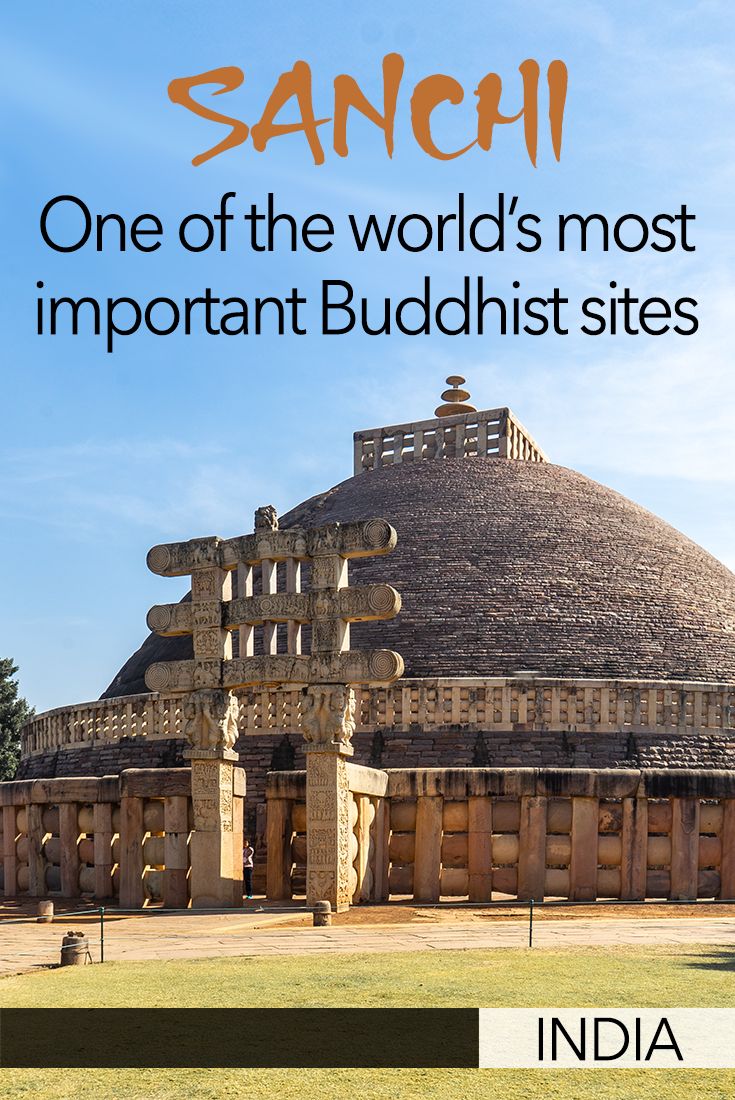


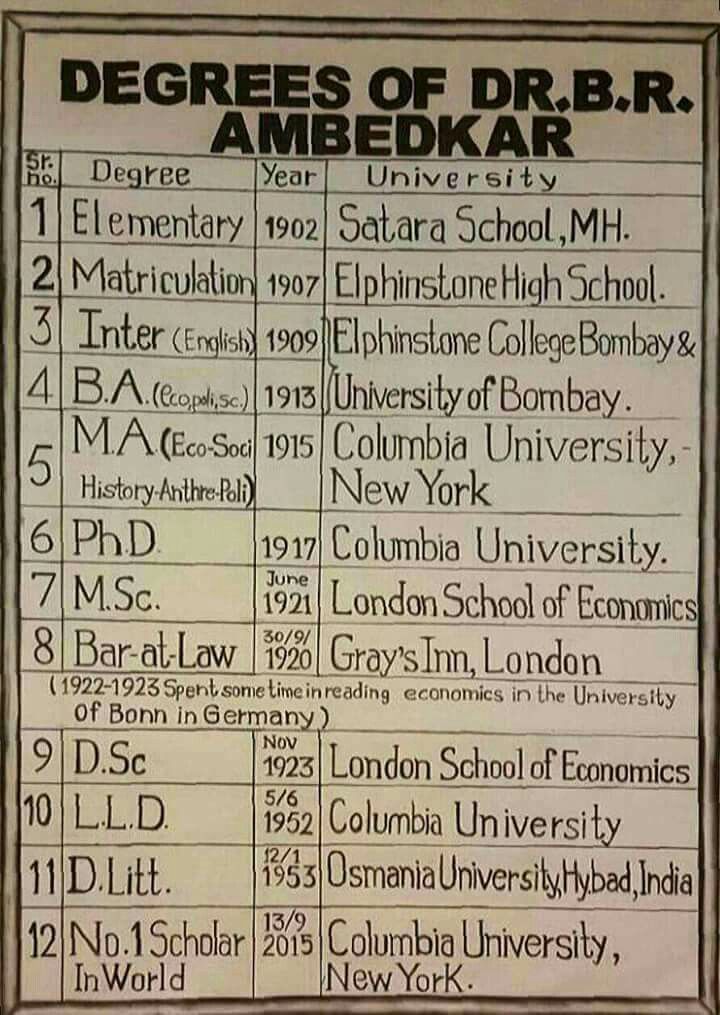
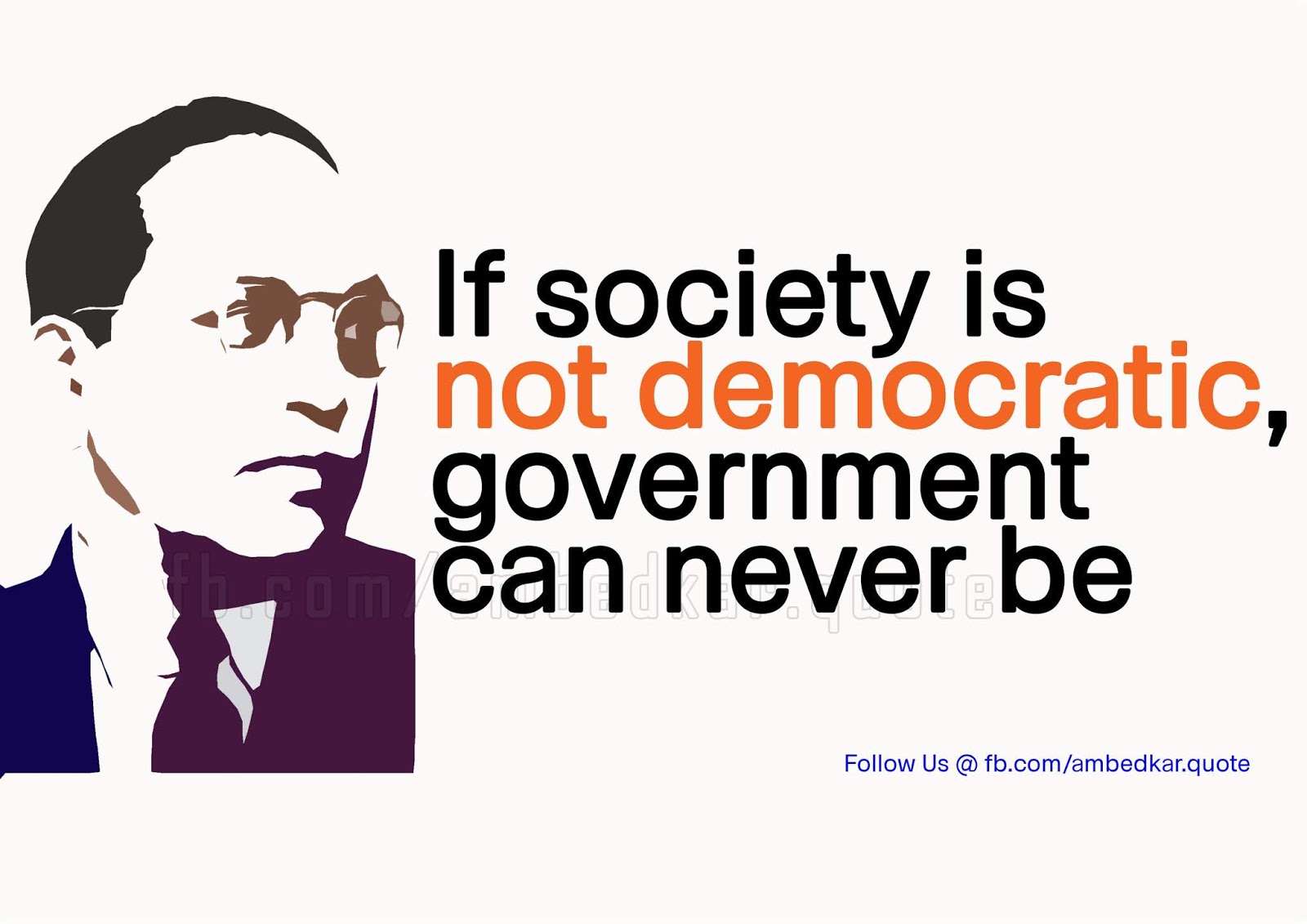
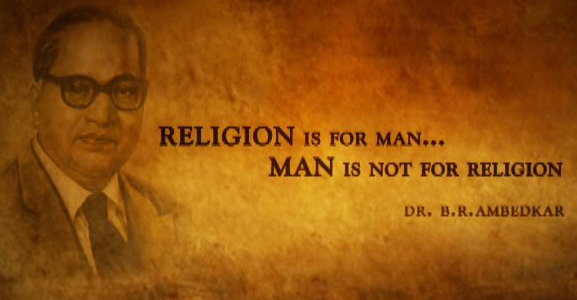



Quotations of Dr. B.R. Ambedkar
Men are mortal. So are ideas. An idea needs propagation as much as a plant needs watering. Otherwise both will wither and die.
The conception of secular state is derived
from the liberal democratic tradition of west. No institution which is
maintained wholly out of state funds shall be used for the purpose of
religious instruction irrespective of the question whether the religious
instruction is given by the state or any other body.
If you ask me, my ideal would be the
society based on liberty, equality and fraternity. An ideal society
should be mobile and full of channels of conveying a change taking place
in one part to other parts.
To idealise the real which more often than
not is full of inequities is a very selfish thing to do. It is only when
a person finds a personal advantage in things, as they are that he
tries to idealise the real. To proceed to make such an ideal real is
nothing short of criminal. It means perpetuating inequity on the ground
that whatever is settled is settled for all times. Such a view is
opposed to all morality. No society with ideal conscience has ever
accepted it. On the contrary whatever progress in improving the terms of
associated life between individuals and classes has been made in the
course of history is due entirely to the recognition of the ethical
doctrine that whatever is wrongly settled is never settled and must be
resettled.
A historian ought to be exact, sincere and
impartial; free from passion, unbiased by interest, fear, resentment or
affection; and faithful to the truth, which is the mother of history the
preserver of great actions, the enemy of oblivion, the witness of the
past, the director of the future.
In every country the intellectual class is
the most influential class. This is the class which can foresee advice
and lead. In no country does the mass of the people live the life for
intelligent thought and action. It is largely imitative and follows the
intellectual class. There is no exaggeration in saying that the entire
destination of the country depends upon its intellectual class. If the
intellectual class is honest and independent, it can be trusted to take
the initiative and give a proper lead when a crisis arises. It is true
that the intellect by itself is no virtue. It is only a means and the
use of a means depends upon the ends which an intellectual person
pursues. An intellectual man can be a good man but he may easily be a
rogue. Similarly an intellectual class may be a band of high-souled
persons, ready to help, ready to emancipate erring humanity or it may
easily be a gang of crooks or a body of advocates of narrow clique from
which it draws its support.
My final words of advice to you are
educate, agitate and organize; have faith in yourself. With justice on
our side I do not see how we can loose our battle. The battle to me is a
matter of joy. The battle is in the fullest sense spiritual. There is
nothing material or social in it. For ours is a battle not for wealth or
for power. It is battle for freedom. It is the battle of reclamation of
human personality.
You must abolish your slavery yourselves.
Do not depend for its abolition upon god or a superman. Remember that it
is not enough that a people are numerically in the majority. They must
be always watchful, strong and self-respecting to attain and maintain
success. We must shape our course ourselves and by ourselves.
Untouchability shuts all doors of
opportunities for betterment in life for Untouchables. It does not offer
an Untouchable any opportunity to move freely in society; it compels
him to live in dungeons and seclusion; it prevents him from educating
himself and following a profession of his choice.
Untouchability has ruined the Untouchables,
the Hindus and ultimately the nation as well. If the depressed classes
gained their self-respect and freedom, they would contribute not only to
their own progress and prosperity but by their industry intellect and
courage would contribute also to the strength and prosperity of the
nation. If the tremendous energy Untouchables are at present required to
fritter away in combating the stigma of Untouchability had been saved
them, it would have been applied by them to the promotion of education
and development of resources of their nation as a whole.
There have been many Mahatmas in India
whose sole object was to remove Untouchability and to elevate and absorb
the depressed classes, but everyone has failed in their mission.
Mahatmas have come, Mahatmas have gone but the Untouchables have
remained as Untouchables.
From the point of view of annihilation of
caste, the struggle of the saints did not have any effects on society.
The value of a man is axiomatic and self-evident; it does not come to
him from the gilding of Bhakti. The saints did not struggle to establish
this point. On the contrary their struggle had very unhealthy effect on
the depressed classes. It provided the Brahmins with an excuse to
silence them by telling them that they would be respected if they
attained the status of Chokhamela.
It is mischievously propagated by Hindu
scriptures that by serving the upper classes the Shudras achieve
salvation. Untouchability is another appellation of slavery. No race can
be raised by destroying its self-respect. So if you really want to
uplift the Untouchables, you must treat them in the social order as free
citizens, free to carve out their destiny.
What you have lost others has gained. Your
humiliations are a matter of pride with others. You are made to suffer
wants, privations and humiliations not because it was pre-ordained by
the sins committed in your previous birth, but because of the
overpowering tyranny and treachery of those who are above you. You have
no lands because others have usurped them; you have no posts because
others have monopolised them. Do not believe in fate; believe in your
strength.
Learn to live in this world with
self-respect. You should always cherish some ambition of doing something
in this world. But remember that the age of selflessness has ended. A
new epoch is set in. All things are now possible because of your being
able to participate in the politics and legislature of your country.
Some people think that religion is not
essential to the society. I do not hold this view. I consider the
foundations of religion are essential to the society. At the roots of
Hindu social system lies a Dharma as prescribed in the Manusmriti. Such
being the case I do not think it is possible to abolish the inequality
in the Hindu society unless foundations of the Smriti-religion is
removed and a better one laid in its place. I however, despair of Hindu
society, being able to reconstruct itself on such a better foundation.
My religious conversion is not inspired by
any material motive. This is hardly anything I cannot achieve even while
remaining an Untouchable. There is no other feeling than that of a
spiritual feeling underlying my religious conversion. Hinduism does not
appeal to my conscience. My self-respect cannot assimilate Hinduism. In
your case change of religion is imperative for worldly as well as
spiritual ends. Do not care for the opinion of those who foolishly
ridicule the idea of conversion for material ends. Why should you live
under the fold of that religion which has deprived you of honor, money,
food and shelter?
I tell you, religion is for man and not man
for religion. If you want to organise, consolidate and be successful in
this world, change this religion. The religion that does not recognise
you as a human being, or give you water to drink, or allow you to enter
in temples is not worthy to be called a religion. The religion that
forbids you to receive education and comes in the way of your material
advancement is not worthy of the appellation ‘religion’. The religion
that does not teach its followers to show humanity in dealing with its
co-religionists is nothing but a display of a force. The religion that
teaches its followers to suffer the touch of animals but not the touch
of human beings is not a religion but a mockery. The religion that
compels the ignorant to be ignorant and the poor to be poor is not a
religion but a visitation!
The basic idea underlying religion is to
create an atmosphere for the spiritual development of the individual.
This being the situation, it is clear that you cannot develop your
personality at all in Hinduism.
In Hinduism, conscience, reason and independent thinking have no scope for development.
It is your claim to equality which hurts
them. They want to maintain the status quo. If you continue to accept
your lowly status ungrudgingly, continue to remain dirty, filthy,
backward, ignorant, poor and disunited, they will allow you to live in
peace. The moment you start to raise your level, the conflict starts.
Untouchability is not transitory or temporary feature; it is eternal, it
is lasting. Frankly it can be said that the struggle between the Hindus
and the Untouchables is a never-ending conflict. It is eternal because
the religion which assigns you the lowest status in society is itself
divine and eternal according to the belief of the so-called high caste
Hindus. No change warranted by change of time and circumstances is
possible.
I have never claimed to be a universal
leader of suffering humanity. The problem of the untouchables is quite
enough for my slender strength. I do not say that other causes are not
equally noble. But knowing that life is short, one can only serve one
cause and I have never aspired to do more than serve the Untouchables.
Every man must have a philosophy of life,
for everyone must have a standard by which to measure his conduct. And
philosophy is nothing but a standard by which to measure.
Negatively I reject the Hindu social
philosophy propounded in Bhagvad Gita, based as it is on the Triguna of
Sankhya Philosophy which in my judgement is a cruel perversion of the
philosophy of Kapila, and which had made the caste system of graded
inequality the law of Hindu social life.
Positively, my social philosophy may be said to be enshrined in three
words: liberty, equality and fraternity. Let no one however say that I
have borrowed my philosophy from the French Revolution. I have not. My
philosophy has its roots in religion and not in political science. I
have derived them from the teachings of my master, the Buddha.
Indians today are governed by two different
ideologies. Their political ideal set in the preamble of the
Constitution affirms a life of liberty, equality and fraternity. Their
social ideal embodied in their religion denies them.
Unlike a drop of water which loses its
identity when it joins the ocean, man does not lose his being in the
society in which he lives. Man’s life is independent. He is born not for
the development of the society alone, but for the development of his
self.
Freedom of mind is the real freedom. A
person, whose mind is not free though he may not be in chains, is a
slave, not a free man. One, whose mind is not free, though he may not be
in prison, is a prisoner and not a free man. One whose mind is not free
though alive, is no better than dead. Freedom of mind is the proof of
one’s existence.
What is the proof to judge that the flame
of mental freedom is not extinguished in the mind of person? To whom can
we say that his mind is free? I call him free who with his conscience
awake realises his rights, responsibilities and duties. He who is not a
slave of circumstances and is always ready and striving to change them
in his flavor, I call him free. One who is not a slave of usage,
customs, of meaningless rituals and ceremonies, of superstitions and
traditions; whose flame of reason has not been extinguished, I call him a
free man. He who has not surrendered his free will and abdicated his
intelligence and independent thinking, who does not blindly act on the
teachings of others, who does not blindly accept anything without
critically analyzing and examining its veracity and usefulness, who is
always prepared to protect his rights, who is not afraid of ridicule and
unjust public criticism, who has a sound conscience and self-respect so
as not become a tool in the hands of others, I call him a free man. He
who does not lead his life under the direction of others, who sets his
own goal of life according to his own reasoning and decides for himself
as to how and in what way life should be lead, is a free man. In short,
who is a master of his own free will, him alone I call a free man.
Caste cannot be abolished by inter caste
dinners or stray instances of inter caste marriages. Caste is a state of
mind. It is a disease of mind. The teachings of the Hindu religion are
the root cause of this disease. We practice casteism and we observe
Untouchability because we are enjoined to do so by the Hindu religion. A
bitter thing cannot be made sweet. The taste of anything can be
changed. But poison cannot be changed into nectar.
What struck me most was that my community
still continues to accept a position of humiliation only because caste
Hindus persist in dominating over them. You must rely on your own
strength, shake off the notion that you are in any way inferior to any
community.
Constitutional morality is not a natural
sentiment. It has to be cultivated. We must realize that our people have
yet to learn it. Democracy in India is only a top dressing on an Indian
soil whish is essentially undemocratic.
Majorities are of two sorts: (1) communal
majority and (2) political majority. A political majority is changeable
in its class composition. A political majority grows. A communal
majority is born. The admission to a political majority is open. The
door to a communal majority is closed. The politics of political
majority are free to all to make and unmake. The politics of communal
majority are made by its own members born in it.
The minorities in India have loyally
accepted the rule of the majority whish is basically a communal majority
and not a political majority. It is for the majority to realize its
duty not to discriminate against minorities. Whether the minorities will
continue or will vanish must depend upon this habit of majority. The
moment the majority looses the habit of discriminating against the
minority, the minorities can have no ground to exist. They will vanish.
We want our own people, people who will
fight tooth and nail for our interest and secure privilege for the
under-privileged; people who will undo the wrongs done to our people
;people who will voice our grievances fearlessly; people who can think,
lead and act; people with principles and character. Such people should
be sent to the legislatures. We must send such people to Legislatures
who will be slaves to none but remain free to their conscience and get
our grievances redressed.
Why does a human body become deceased? The
reason is that as long as the human body is not free from suffering,
mind cannot be happy. If a man lacks enthusiasm, either his body or mind
is in a deceased condition…. Now what saps the enthusiasm in man? If
there is no enthusiasm, life becomes drudgery – a mere burden to be
dragged. Nothing can be achieved if there is no enthusiasm. The main
reason for this lack of enthusiasm on the part of a man is that an
individual looses the hope of getting an opportunity to elevate
Himself. Hopelessness leads to lack of enthusiasm. The mind in such
cases becomes deceased…. When is enthusiasm created? When one breaths an
atmosphere where one is sure of getting the legitimate reward for one’s
labor, only then one feels enriched by enthusiasm and inspiration.
The fundamental principle of Buddhism is
equality… Buddhism was called the religion of Shudras. There was only
one man who raised his voice against separatism and Untouchability and
that was Lord Buddha.
The teachings of Buddha are eternal, but
even then Buddha did not proclaim them to be infallible. The religion of
Buddha has the capacity to change according to times; a quality which
no other religion can claim to have…Now what is the basis of Buddhism?
If you study carefully, you will see that Buddhism is based on reason.
There is an element of flexibility inherent in it, which is not found in
any other religion.
I am myself a believer in Animas
(non-violence). But I make a distinction between Animas and meekness.
Meekness is weakness and weakness is voluntarily imposed upon oneself is
not a virtue. I am believer in Animas but in the sense defined by the
saint Takuma. Takuma has quite rightly said that Animas consisted of two
things: (1) love and kindness towards all creatures and (2) destruction
of evil doers. The second part of this definition is often lost sight
of that the doctrine of Animas becomes so ridiculous.
